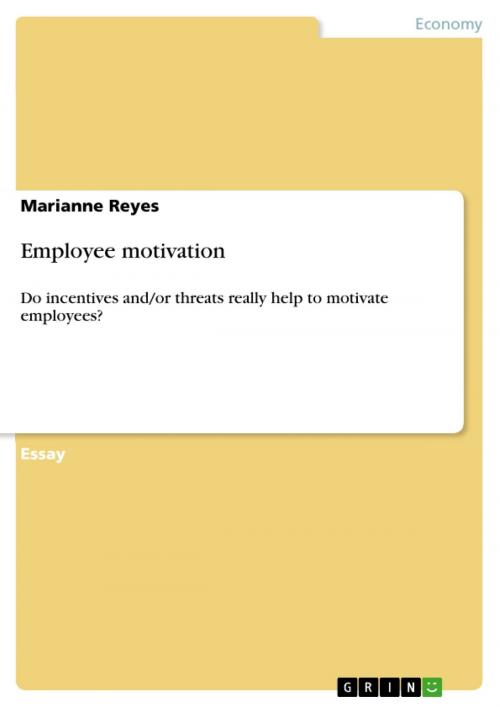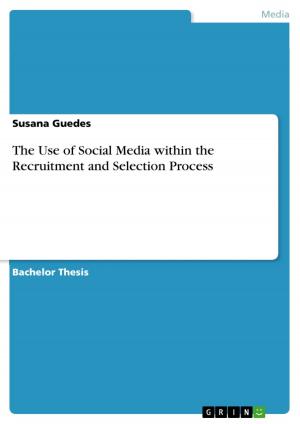Employee motivation
Do incentives and/or threats really help to motivate employees?
Business & Finance, Human Resources & Personnel Management| Author: | Marianne Reyes | ISBN: | 9783640881970 |
| Publisher: | GRIN Publishing | Publication: | April 1, 2011 |
| Imprint: | GRIN Publishing | Language: | English |
| Author: | Marianne Reyes |
| ISBN: | 9783640881970 |
| Publisher: | GRIN Publishing |
| Publication: | April 1, 2011 |
| Imprint: | GRIN Publishing |
| Language: | English |
Essay from the year 2010 in the subject Business economics - Personnel and Organisation, grade: A, The University of Surrey (School of Management), course: MSc Human Resource Management, language: English, abstract: This paper critically evaluates whether incentives and threats really help to motivate employees. For this purpose the phenomenon of motivation in this specific area will be illustrated and explained through multiple theories and practical examples. A considerable amount of traditional theories in relation to motivation can be found in many books and journals. In fact, many influential traditional theorists such as Abraham Maslow's Hierarchy of needs (1943), Douglas McGregor's Theory X and Theory Y (1957) and Frederick Herzberg's Dual-factor-theory (1986) wrote about motivation or people's behaviour in general. On the other hand, Victor Vroom (1964) explained his opinion about work behaviour with his 'Expectancy theory'. Some of these theorists support their views with different models.
Essay from the year 2010 in the subject Business economics - Personnel and Organisation, grade: A, The University of Surrey (School of Management), course: MSc Human Resource Management, language: English, abstract: This paper critically evaluates whether incentives and threats really help to motivate employees. For this purpose the phenomenon of motivation in this specific area will be illustrated and explained through multiple theories and practical examples. A considerable amount of traditional theories in relation to motivation can be found in many books and journals. In fact, many influential traditional theorists such as Abraham Maslow's Hierarchy of needs (1943), Douglas McGregor's Theory X and Theory Y (1957) and Frederick Herzberg's Dual-factor-theory (1986) wrote about motivation or people's behaviour in general. On the other hand, Victor Vroom (1964) explained his opinion about work behaviour with his 'Expectancy theory'. Some of these theorists support their views with different models.















